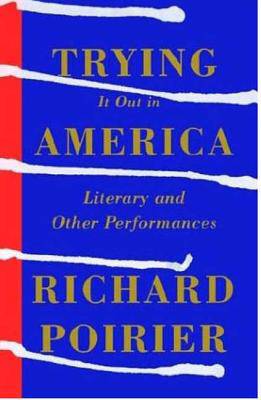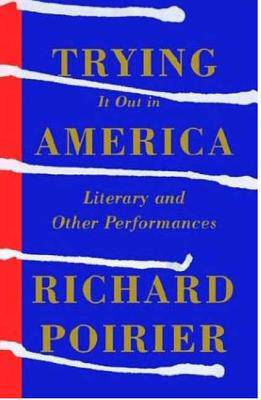
- Retrait gratuit dans votre magasin Club
- 7.000.000 titres dans notre catalogue
- Payer en toute sécurité
- Toujours un magasin près de chez vous
- Retrait gratuit dans votre magasin Club
- 7.000.0000 titres dans notre catalogue
- Payer en toute sécurité
- Toujours un magasin près de chez vous
Trying It Out in America
Literary and Other Performances
Richard Poirier, Wilson FollettDescription
The experimental genius of American artists-interpreted by one of our most dependably brilliant critics.
Richard Poirier suggests, in the title of his new book, that the United States has been uncommonly hospitable to literary and artistic experimentation, to innovation and daring. Just as the nation likes to imagine itself as always in a state of becoming and renewal, some of its greatest writers seem willing to accept a measure of neglect during their lifetimes while remaining confident of posthumous triumph. With analytical daring and shrewd literary delicacy, Poirier advances these themes in essays ranging from Emerson and Whitman to "those avowed imperialists of the novelistic imagination Herman Melville, Henry James, and Norman Mailer," along with kindred twentieth-century figures such as T. S. Eliot and Frank O'Hara, Gertrude Stein and Marianne Moore.
Poirier's explorations of the American scene are not limited to poets and novelists. His moving account of the American ballets of George Balanchine, of Bette Midler in performance, of the reclusive Arthur Inman-whose immense diary offers incomparable glimpses into daily life during World War II-and his challenging refutations of some persistent myths of American "manhood" and of America itself, by outside observers like Jean Baudrillard or Martin Amis, will bring readers to a new appreciation of the most interesting (and difficult) features of American culture.
Spécifications
Parties prenantes
- Auteur(s) :
- Editeur:
Contenu
- Nombre de pages :
- 332
- Langue:
- Anglais
Caractéristiques
- EAN:
- 9780374529185
- Date de parution :
- 16-05-03
- Format:
- Livre broché
- Format numérique:
- Trade paperback (VS)
- Dimensions :
- 144 mm x 221 mm
- Poids :
- 430 g







